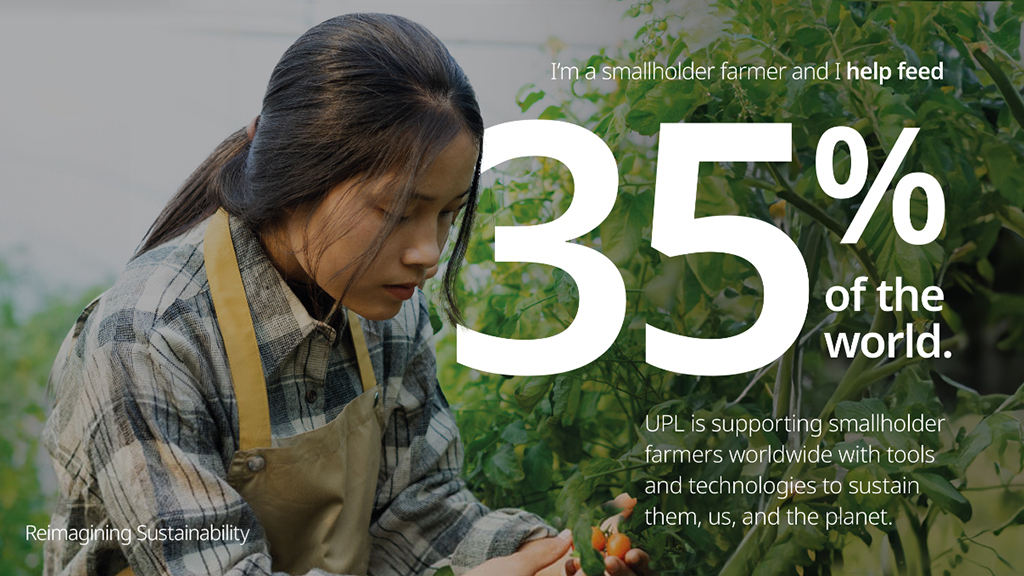Small farms: huge impact
There are over 608 million farms worldwide, with more than 90% classified as family farms. These farms, often operated by individuals or families and heavily reliant on family labor, occupy approximately 70-80% of global farmland. They play a critical role in sustainable food production, accounting for about 80% of the world's food value.
In terms of food production, smallholders working on less than 2 hectares cultivate around 12% of available land and contribute to about 35% of the overall food supply. In regions like Sub-Saharan Africa and East Asia, the contribution could be as high as 80%. It's noteworthy that small farms prioritize food production over non-food crops or animal feed, promoting food security, social inclusion, economic development, and sustainability in our global food system.
At UPL, we have long been committed to supporting smallholder farming communities worldwide. We understand the challenges they face, including price volatility, limited access to technology and information, and inadequate rural infrastructure. We acknowledge the significance of adopting sustainable practices in such circumstances. That is why we offer a comprehensive solution to farmers, encompassing training, financing options, market access, and post-harvest support. Our mission is to empower farmers with the knowledge and resources necessary to cultivate healthy crops and deliver them to consumers. One of the ways we accomplish this is through our training and stewardship programs. We ensure that farmers possess the expertise and skills required to use our solutions effectively while minimizing any environmental impacts. For instance, our Applique Bien initiative focuses on teaching smallholders best practices for storing and applying hazardous products, safeguarding both the farmers and the environment, all while optimizing their return on investment. Moreover, UPL facilitates farmers' access to the tools and technologies essential for crop and field vitality. Our Zeba biosolution, for instance, reduces water requirements for agriculture irrigation, enabling greater yield with fewer water resources.
By implementing regenerative practices and sustainable solutions, small and family farms can achieve valuable benefits for both people and the planet. They have the opportunity to grow resilient crops, increase their incomes, and contribute to a climate-positive agricultural system. UPL works with farmers to promote products and practices that build soil health. With the right practices, agricultural soil possesses the remarkable potential to store over three times the amount of carbon found in the atmosphere, making it a powerful tool for farmers in combating climate change and improving the life and resilience of cropland worldwide.

